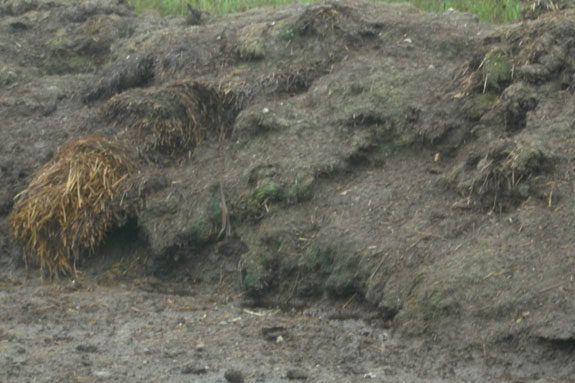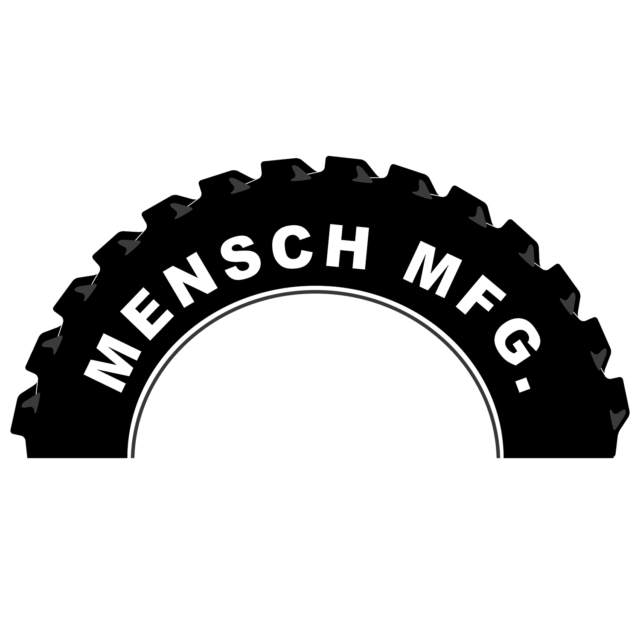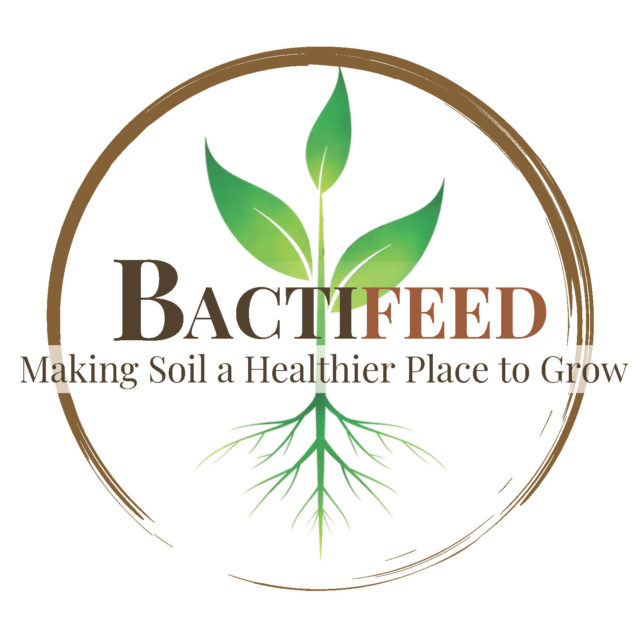Demand for compost products is on the rise, presenting a viable value-added product for farmers. Yet few farmers take advantage of this opportunity, often lacking the time or marketing skills to explore turning compost into a marketable commodity. Compost marketing plan Successful marketing of compost requires a foundation of knowledge about compost – benefits to potential customers, uses for compost, the composting process and compost characteristics. It helps to assure customers that your facility is legitimate and dependable.
Compost facilities need to compete with other compost operations, as well as traditional soil and planting media (such as peat). Compost operators need to convince potential customers that compost is an effective alternative to these traditional products and that your compost product is the best.
Marketing is an essential component of your business and business plan. Financial lenders want accurate information about potential markets, sales potential, etc. A well-done marketing plan demonstrates a clear understanding of production, capital requirements, costs, market segments, alternative markets, customers’ needs and purchasing habits and the competition.
A marketing plan is only as good as the information it contains. Accuracy and thoroughness are vital to your marketing success.
A marketing plan should be a useful tool that is revisited on a yearly basis and viewed and discussed by appropriate staff on a monthly basis.
For established, successful businesses, the marketing plan will help to “tune-up” and reaffirm the business’ ongoing activities. For a new business or one entering new markets, a marketing plan can be the key to business success.
A marketing plan explains sales strategies, pricing, promotions and benefits. It describes how you will get a customer to purchase your compost product. It is an essential part of any business plan and also functions as a stand-alone document. Keep your marketing message short and your plan simple.
Market research
Market research is essential in determining an effective marketing strategy and achieving your profit potential. It requires that you explore the market to understand customers, competitors and the supply network.
Doing your own marketing research will yield a higher return (which you get to keep) and allows you to maintain more control over your product quality, image and pricing. However, it takes commitment, skill and money.
Placing yourself in the role of a customer will help you to gain insight into your competition. Visit your competition: garden centers, etc. Evaluate the quality of the products and the amount of sales.
Purchase some of the products and look at quality uniformity day-to-day, week-to-week. Note prices, packaging, promotional displays and customer education on using compost.
Be upfront with potential direct competitors. Tell them you want to get into the business. Ask them for an honest assessment of the market – is it too small? Oversupplied? Some will talk with you, some will not.
If your research shows there is already substantial competition for the target compost market, consider revising your product definition, reformulating your recipe and looking into other niche compost markets.
The information already gathered in your market research can point to other opportunities. Marketing research will allow you to understand and predict the market for your business. It will help you gain the skills you will need as your business grows.
The marketing mix or the ‘Four P’s’ of marketing
1. Product. The goal of business is to make money selling products or services. But it must be the right product to meet the needs of your target customer. Product attributes include quality, benefits, features, options, brand name, packaging, etc.
2. Price. The right product offered at the right price.
3. Place. The right product at the right price available in the right place to be purchased by users.
4. Promotion. Making potential customers aware of the product, its price, and where it can be purchased.
Product
In order to entice customers to purchase your compost, you must first understand exactly what compost is, the compost recipe, the process you are using to make the compost and the intended use of the final product.
Customers, especially businesses and municipalities, rely on a steady product supply and consistent product. Product incorporates not only the physical characteristics of the compost, but other characteristics that will make your product attractive such as quality, uniqueness, options, services, packaging and brand identification.
The product is best thought of as a bundle of goods and services that includes the product appearance, its function and benefits for the consumer and the support you offer the customer in using your product.
Price
“Price” is the amount you charge for your compost product. There are many formulas and strategies for setting prices. These should be addressed in your business plan.
Conducting market research will tell you the prices competitors are setting, how prices fluctuate over the seasons and from year-to-year and how prices are affected by supply and demand, product quality, different compost products, sales quality and service.
Research what you can about price ranges, variation and trends in prices of compost products in your region. Be conservative about projecting operation revenues.
Pricing strategy will reflect the competition, costs of production, the quality of the product you are offering, service and convenience provided with your sales, the types of buyers targeted and a level at which a product will sell, is comparable to other competing brands and is higher than the average cost of production.
Your approach to setting the price for your compost should be appropriate for the position of the product in the market, allowing for production costs to be covered and a profit to be made.
The price should be competitive with other compost and compost alternatives. Some customers may interpret lower pricing to mean poorer quality, so be careful to price the product according to quality and competition.
Effective pricing is important for the success of the compost operation. Ultimately, it must not only cover the cost of production, but also enhance your product image by portraying the perceived value of your compost, its quality and its superiority over competing products.
Pricing will also be affected by the type of distribution, whether the compost product is sold directly from the operation or sold through a retailer or wholesaler.
The term “breakeven analysis” describes the amount of profit necessary to keep the business running effectively and sales required to reach that point.
Other factors affecting price include long-term contracts or bid awards. If compost is purchased by landscapers or through a government contract, payment periods will need to be established and considered in business planning.
Reasonable discount pricing on large-quantity orders can be offered as a purchasing incentive. Composting sales are seasonal. To be successful, compost operators need to consider this in their operational planning.
Services could be bundled to include collection of feedstock or delivery of end product.
Estimate how much of your product you will be able to sell in an average future year. The average future year is the one where you expect your business to be well established and stabilized. Research target markets, marketing options, market demands, competition, trends and prices.
Compare and analyze the results; project the volume of sales you expect to generate when you enter the market. Estimate the minimum and maximum volume you believe you could sell. Set a realistic goal for sales in an average future year. Conservative estimates on early sales revenues is also important.
Place
The market for the compost is typically local, within 25 to 50 miles of the compost operation, due to the relatively high cost of transportation compared to other production costs. While this presents a market barrier, it can also present an opportunity, as it limits competition to the immediate area.
Direct marketing from the compost operation site allows for you to have control over the product range, how it will be sold (whether by bulk or bagged) and at what price. Direct sales of compost works well, especially for new operations and to meet the seasonal production and demand for compost.
To conduct direct sales, however, requires a high level of expertise of the compost product. Determine the most effective and efficient means to get your products to those markets. To gain ground in existing markets, learn who the buyers in the target market are, what they purchase, how often they purchase and the price they pay. Sales skill development is a must in direct customer interaction.
Retailers purchase compost directly from processors and/or wholesalers in order to provide a mix of compost products to attract consumers to their stores. Retailers depend on consistent quality and availability of products. They purchase products to benefit their own business.
Wholesalers sell product to retailers, other wholesalers and industrial users. Selling your product to a wholesaler or distributor allows you to focus on product production without having to deal with the marketing or sales end; however, it means you will lose a percentage of your revenue.
Promotion
Promotion and advertising tell a consumer what a product can do for them as compared to other similar products. It helps consumers differentiate between similar products. Good advertising should reflect the character, beliefs, needs and wants of the targeted market segment.
Your marketing plan should include a description of the advertising to be conducted, a timeline, as well as estimated costs for the advertising and promotions.
A promotional method must be effective in reaching the targeted market or customer base. Advertising should be consistent over a period of time, and it should be what your business can afford.
As a general rule, startup companies or ones venturing into new product areas will spend 20 to 30 percent of their budget in the first year or two on marketing activities. Once established, plan on spending 5 to 10 percent of your budget on marketing. PD
—Excerpt from Making Your Compost Product Work for You as posted online at www.nerc.org. Contact Athena Lee Bradley, Projects Manager, NERC, at Athena@nerc.org for additional information.







